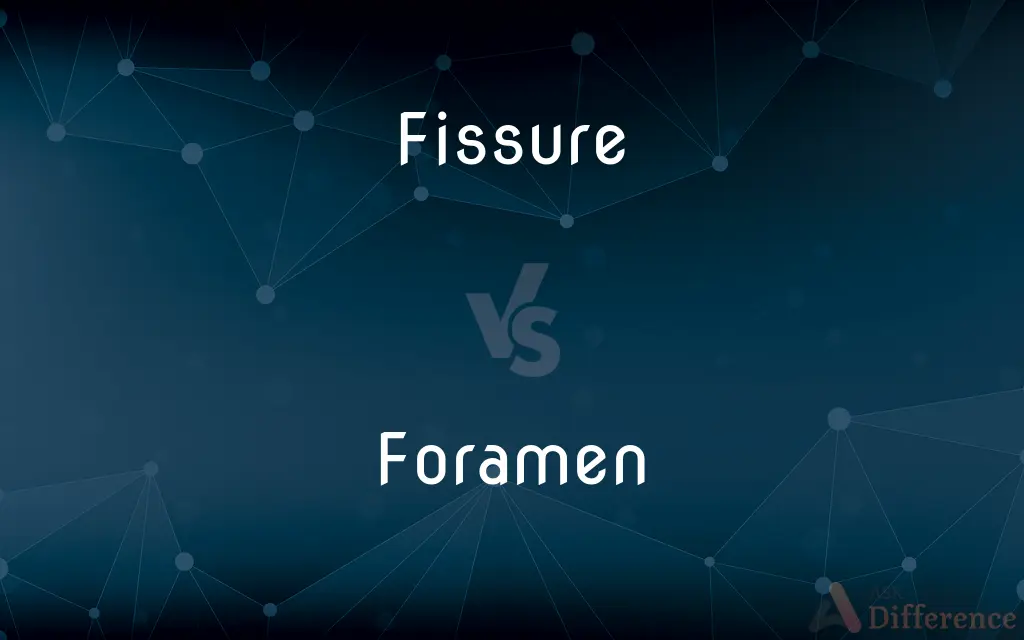Fissure vs. Foramen — What's the Difference?

Difference Between Fissure and Foramen
ADVERTISEMENT
Compare with Definitions
Fissure
In anatomy, a fissure (Latin fissura, plural fissurae) is a groove, natural division, deep furrow, elongated cleft, or tear in various parts of the body. It is also generally called a sulcus, but this term can also reffer specifically to the analagous brain structure.
Foramen
In anatomy and osteology, a foramen (; plural foramina, or foramens ) is an open hole that is present in extant or extinct amniotes. Foramina inside the body of animals typically allow muscles, nerves, arteries, veins, or other structures to connect one part of the body with another.
Fissure
A long narrow opening; a crack or cleft.
Foramen
An opening or orifice, as in a bone or in the covering of the ovule of a plant.
Fissure
The process of splitting or separating; division.
ADVERTISEMENT
Foramen
(skeleton) An opening, an orifice, or a short passage, especially in a bone.
The skull contains a number of foramina through which arteries, veins, nerves, and other structures enter and exit.
Fissure
A separation into subgroups or factions; a schism.
Foramen
A small opening, perforation, or orifice; a fenestra.
Fissure
(Anatomy) A normal groove or furrow, as in the liver or brain, that divides an organ into lobes or parts.
Foramen
A natural opening or perforation through a bone or a membranous structure
Fissure
(Medicine) A break in the skin, usually where it joins a mucous membrane, producing a cracklike sore or ulcer.
Fissure
To form a crack or cleft or cause a crack or cleft in.
Fissure
A long, narrow crack or opening made by breaking or splitting, especially in rock or earth.
Fissure
(anatomy) A groove, deep furrow, elongated cleft or tear between body parts or in the substance of an organ; a sulcus.
Fissure
(anatomy) A break or slit in tissue usually at the junction of skin and mucous membrane.
Fissure
A state of incompatibility or disagreement.
Fissure
To split, forming fissures.
Fissure
A narrow opening, made by the parting of any substance; a cleft; as, the fissure of a rock.
Fissure
To cleave; to divide; to crack or fracture.
Fissure
A long narrow depression in a surface
Fissure
A long narrow opening
Fissure
(anatomy) a long narrow slit or groove that divides an organ into lobes
Fissure
Break into fissures or fine cracks
Share Your Discovery

Previous Comparison
Eddy vs. Whirlpool
Next Comparison
Gypsy vs. Zingaro













































